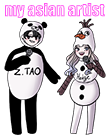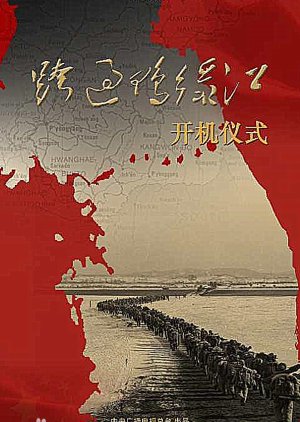Zheng Rui looked at the cotton shoes sewed by his mother and the fried noodles made by his own sister brought by his sister, and expressed his gratitude for the warmth of his family. He took the candy to his sister, and told her to always pay attention to safety. Zheng Shuangxue optimistically believes that the enemy is losing out and China is bound to win.
When MacArthur learned the news of the fall of Seoul, he not only ignored Washington’s orders for an explanation, but instead blamed the U.S. government for its inaction against China, the enemy. MacArthur firmly believed that the U.S. military could still hit the Chinese army severely, and Truman also offered to give Li Qiwei another chance.
If the United Nations approves the truce agreement of the three-person truce in North Korea, the United States may use the truce to maintain its strength, maintain certain areas in South Korea and arm Japan. Mao Zedong proposed that if the United Nations passes such an agreement, China will resolutely reject it and put forward its own proposition. Zhou Enlai told Mao Zedong that Truman was requesting military expansion and preparation for war, and that he intended Chiang Kai-shek to attack the law from East China.
Mao Zedong ordered Chen Yi to actively deploy air defenses in Xiamen. The air force had no time to prepare for North Korea and East China, and the four armies of Fujian were enough to resist. All troops in East China must pay close attention to training, and Xiamen has been preparing for a long time to prepare for the KMT’s offensive.
Facing the personnel sent by Washington, Li Qiwei explained that his retreat was for a better offensive. He knew the true strength of the Chinese army, officially because Washington and MacArthur’s repeated underestimation of the enemy led to the current situation. He proposed that the Volunteer Army is best at V-shaped tactics, and the most amazing thing is their execution ability, no matter what order their army can achieve. Li Qiwei is well aware of the details of every battle that the U.S.
Army and the Volunteers have fought. He firmly believes that the Chinese Army is their unprecedented rival. The US military may have the strongest air force and navy in the world, but China has the strongest army in the world.
Through analysis, Li Qiwei found that the Chinese army’s offensive could only last for one week at a time. Because in such interspersed battles, China’s supply can only last for a week, and insufficient supply is the Achilles heel of the volunteers. His retreat was to extend the supply line of the volunteers. Without food and ammunition, the US army would have a chance to counterattack, and today is the seventh day, he is confident that he can turn the tide of the battle.
Han Xianchu has already discovered the passive resistance of the U.S. Army and the supply of ammunition and rations for the stretched supply line soldiers is already tight. He knows that something is wrong and immediately sent a telegram to Mr. Peng. But now the domestic sentiment for quick victory is very high, and he is very interested in defeating the U.S. Empire.
The voice of ism is very high. President Peng sat on a stool and confessed that he was really scared this time. He had never been afraid of victory or defeat during his life, but this time the soldiers on the front line were extremely tired, and there was no mass foundation along the way, and food could not be raised on the spot. Soldiers have been left behind in groups of three to five.
If the U.S. forces counterattack now, they will almost have to wait to die when the ammunition is exhausted. President Peng is very worried about the US military’s repeated retreat. The volunteers are constantly consuming short battles every day, but the US military’s vitality is not damaged in the slightest. Thinking of Li Qiwei’s letter to him, Mr. Peng understood that Li Qiwei was retreating in an orderly manner.
Faced with such problems, President Peng ordered the immediate end of the third battle, requiring the soldiers to rest on the spot, and requested an immediate telegram to Han Xianchu. For the urging of the central government and the Soviet Union and North Korea, he stated that he would take care of any problems.
The U.S. Army received news that the Volunteers were unable to advance south due to insufficient logistical supplies. They decided to launch a counterattack and negotiate with China. The Soviet ambassador to North Korea came to meet with President Peng. The Soviet side hoped to continue to expand the results, but President Peng said frankly that the front-line forces have been unable to expand the results.
The Soviet ambassador bluntly said that this was because the volunteers were greedy for life and fear of death, which angered President Peng. The Soviet Union had never been on the front line at all. What qualifications does he have to comment on the soldiers on the front line? He bluntly asked the ambassador to offer condolences to Comrade Stalin and hoped that he would never see him.
President Peng’s temper was dissatisfied with the Soviet ambassador, but the objective situation he put forward was reasonable, but Mao Zedong also thought that taking advantage of such a result, if he persisted, he might be able to force the US military to retreat to Japan. Nie Rongzhen cautiously reminded Mao Zedong that this battle may be won but also may be lost.
The third battle is of little practical significance in terms of military strategy. Although President Peng expressed his opposition at the time, he still executed the order, but now the more he wins. The more calm you should be. Mao Zedong thought about his words, Zhou Enlai hurried to the United States and said that China had launched the war of aggression.
At the same time, Stalin sent a telegram that he had recalled the Soviet ambassador in order not to interfere with China’s war command. In addition, the U.S. military had sent planes to blow up the volunteer supply lines. This proves Mr. Peng’s speculation that the US military is about to start counterattacking. Although the Soviet planes confronted US planes over North Korea, they never brought Chinese pilots to fight.
Mao Zedong knew that the flight duration of Chinese pilots was still short, but the enthusiasm of the pilots was very high. Mao Zedong was pleased to agree that the time was right to send the plane to the war, but he did not require a blockbuster. Lifting off was a victory, and he telegraphed Mr. Peng to agree to the troop rest on the spot.
The six pilots learned that the U.S. bomber had taken off, and under the leadership of the flight captain Li Han they boarded the plane to fight. Looking at the Chinese planes flying away, the Soviet instructors reminded these fighters that they would have to train for at least six months before they could fight. They would regret today’s decision, but Fang Ziyi told him that the Chinese Air Force would have no regrets no matter what the outcome today.
Li Han steadily controlled the aircraft and successfully destroyed an enemy aircraft of the U.S. Army, but all of our six aircraft returned without damage. Mao Zedong was very pleased that he won the first battle, and China can finally confront the US military in the sky.
President Peng was very pleased to learn the news of the Air Force’s victories. These few battles greatly deterred the US military, and seeing Deng Hua returning from recovery made Peng Zongle happy. Deng Hua, who is concerned about the Korean battlefield, is already aware of the current situation. The troops have been rested for two weeks.
The US military often sends small units to harass the rest of the volunteers, which makes the frontline soldiers very tired. Deng Hua analyzed that Li Qiwei’s move was intended to detect the reality and to find out the position of the main force of the volunteers. This is why President Peng urgently stopped the troops.

